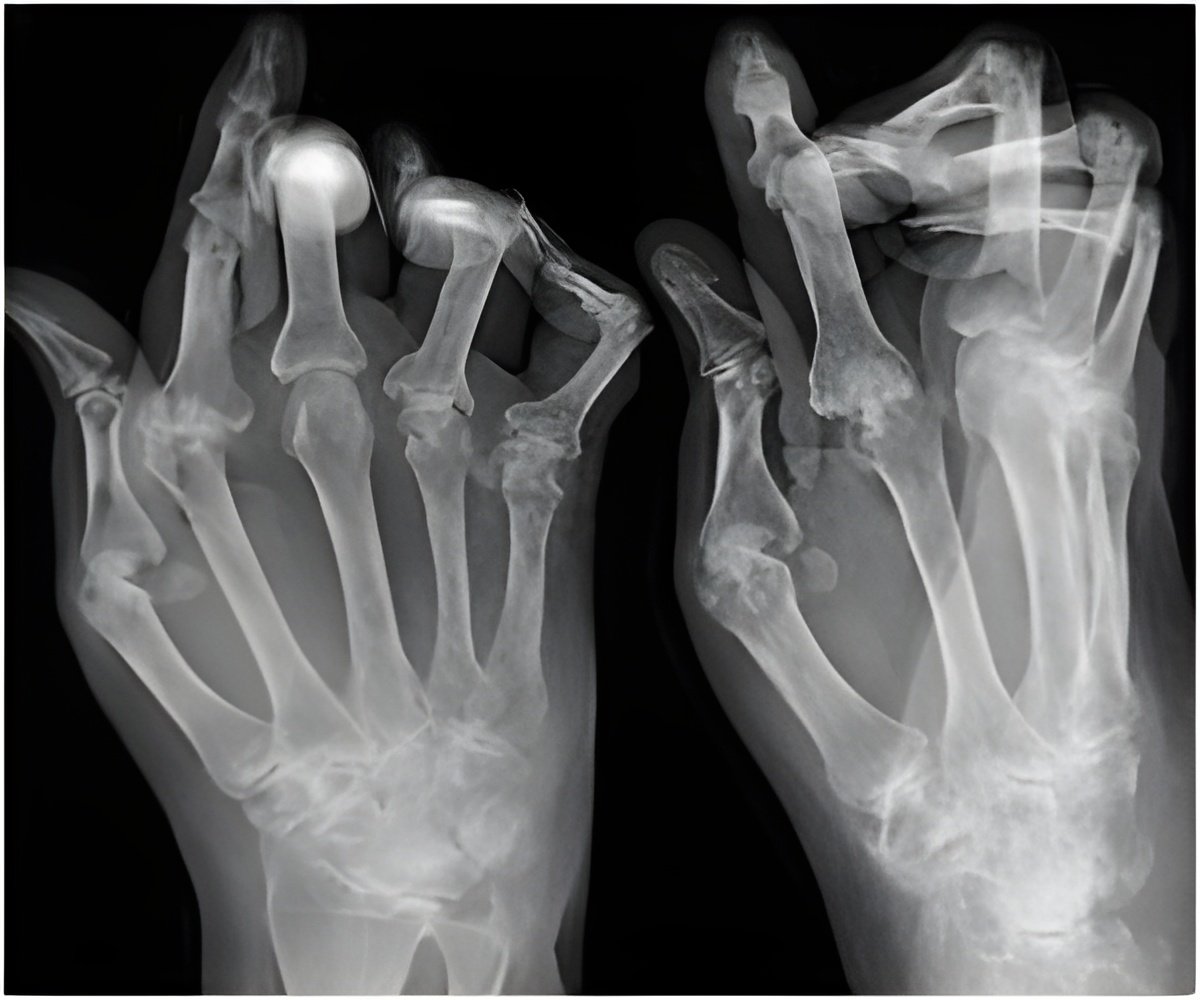Rheumatoid arthritis (RA), a chronic inflammatory disease is a medical condition where the body starts to attack the joints and organs of the body.

As expected elevated levels of citrullinated proteins (CP) were found in the knees of people with RA, compared to the joints of the control group. The new research also discovered enhanced levels of the enzymes (PAD2 and 4), responsible for these aberrant proteins, in the biopsies of people with RA. Additionally both the level of CP and of PAD correlated with the extent of inflammation – the more CP and PAD the worse the inflammation.
Treatment with methotrexate, an anti rheumatic drug, used to treat RA, had no effect on the levels of CP or PAD. However a single injection of glucocorticoid was able to reduce both the level of protein citrullination and PAD4, and this was matched by a decrease in visible signs of inflammation.
The beneficial effect of glucocorticoids was limited to cells from the inflamed joints. A synthetic glucocortioid (DEX) was tested in on both synovial fluid and blood from people with RA, but only the cells from the synovial fluid responded with a decrease in CP and PAD2 or PAD4.
Dr Anca Catrina from the Karolinska Institute and University Hospital who led the research explained that future tailoring of RA management and the development of new treatments is dependent on a better knowledge of the disease. She said, "Our work has been able to establish for the first time that different treatments have different effects on protein citrullination, an important process in the progression of RA."
Source-Eurekalert













